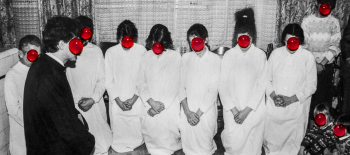New Book Release: “Bird Streets” by Piotr Paziński, translated by Ursula Phillips
Piotr Pazinski’s “Bird Streets” tries to recapture vestiges of a culture that was once abundantly present, but is now absent.
The title of the book, or rather the four interconnected novellas that comprise it, refers to the pre-war names, several still surviving, of streets in the Muranów or Northern District of central Warsaw where many Jews lived before 1939 and which were enclosed in the Ghetto in November 1940.
The Bird Streets do not trace precisely the boundaries of the Ghetto, but a comparison of the Ghetto plan with a pre-war street map demonstrates how they could be said in a general sense to embrace its network of streets: Gęsia and Pawia in the north, Wronia to the west, Orla to the south.
Following the forced transportation of the Jewish residents to extermination camps and the crushing of the Ghetto Uprising (19 April-16 May 1943), the area encompassed by the Bird Streets was razed to the ground.
The book tries to recapture vestiges of a culture that was once abundantly present but is now absent. Hidden remnants, echoes and signs can still be found, especially underground.
It is important to realize, however, that Paziński’s prose is not Holocaust memoir as such; nor is its mood primarily one of horror or of nostalgia.
On the contrary, all four narrators, intrigued by the lost world which older generations still embody and talk about and which they themselves, as the last recipients of the memories, feel bound to write down, convey a tone not only of wistfulness and reflection, but also of irony and gentle humour.
“Bird Streets” is published by Vine Editions and translated into English by Ursula Phillips, British translator of Polish literary and academic works.
To buy the book:
Bird Streets eBook : Paziński, Piotr , Phillips, Ursula : Amazon.co.uk: Kindle Store
About the Author
Piotr Paziński (b. 1973) is a literary critic, philosopher, translator, and novelist of Jewish heritage who lives in Warsaw and writes in Polish.
Paziński grew up in Warsaw in a Jewish family as a “third-generation” survivor, but who “remembers” through the accounts of older family members as well as through his own imaginative and poetic reconstructions. His fiction falls into the category of literary prose described by critics and academics as “post memory”.
“Bird Streets” is Paziński’s second work of fiction, the first being the novel, “The Boarding House” (Pensjonat, 2009), which was nominated for the Nike Prize in 2010, a major Polish annual award, and received a European Literature Prize in 2012.
From 2000 to 2019, Paziński was editor-in-chief of Midrasz, a monthly journal published in Warsaw on Jewish culture, religion, literature, and history including Polish/Jewish relations past and present. Midrasz played a key role in enhancing the visibility of Jewish culture during the so-called Jewish revival in Poland in the 1990s and 2000s.
As a literary critic, an important focus of his work has been James Joyce’s Ulysses. In 2008, he published a guide to Dublin based on the wanderings of Joyce’s characters. Following the publication of a new translation of Ulysses into Polish by Maciej Świerkocki (2021) marking the novel’s centenary, he posted a series of informal lectures on the novel on Facebook.
He is author of two volumes of critical essays: Torn and Frayed Reality (Rzeczywistość poprzecierana, 2015), which includes essays on Joyce, Kafka, Borges, Paul Celan and Polish-Jewish writers of the interwar period; and Fake Realities (Atrapy stworzenia, 2020) about dolls, dummies, wax-figure cabinets, androids and mannequins in 19th-century Western culture.
He is an advocate of ghost stories and other mysterious and imaginative fiction, and as such is editor of a recently published volume of Polish Gothic stories from the 19th and 20th centuries, which includes his substantial introduction: Tales of the Uncanny Written in Polish (Opowieści niesamowite z języka polskiego, 2021).
Paziński also translates from Hebrew into Polish. In 2017 he received the Tadeusz Boy- Żeleński Prize awarded by the City of Gdańsk for his translation of stories by Shmuel Yosef Agnon (1888-1970).
More about the author on the website of the Polish Book Institute:
https://instytutksiazki.pl/en/polish-literature,8,authors-index,26,piotr-pazinski,156.html?filter=P
About the Translator
Ursula Phillips is a British translator of Polish literary and academic works, and an historian of Polish literature specializing in women of the 19th and 20th centuries. Recent translations include novels by interwar writer Zofia Nałkowska, Choucas (1927) and Boundary (1935), which received the Found in Translation Award 2015 and the PIASA (Polish Institute of Arts and Sciences of America) Wacław Lednicki Award 2017 respectively. Her most recent translations include Grzegorz Niziołek’s The Polish Theatre of the Holocaust (2019) and Another Canon: The Polish Nineteenth-Century Novel in World Context, edited by Grażyna Borkowska and Lidia Wiśniewska (2020). She is currently translating the 1000-page sci-fi-cum-alternative-history epic Ice (2007) by contemporary author Jacek Dukaj.



